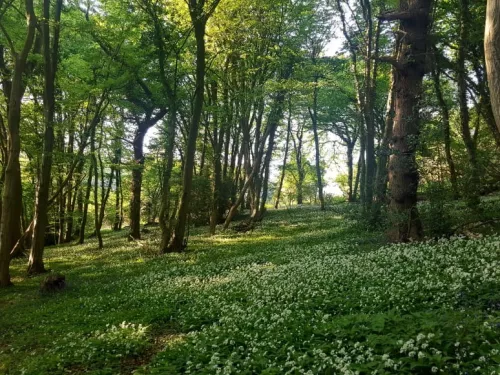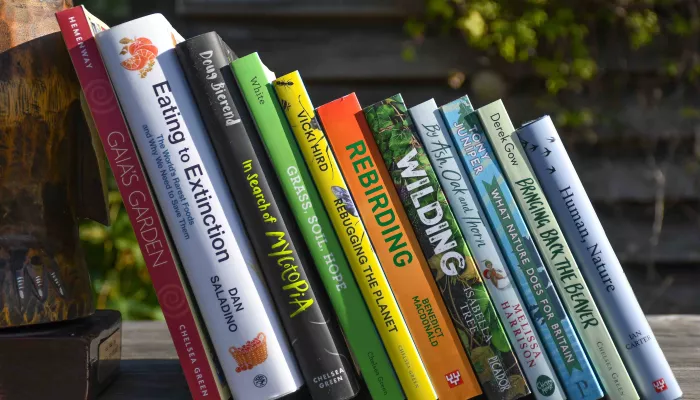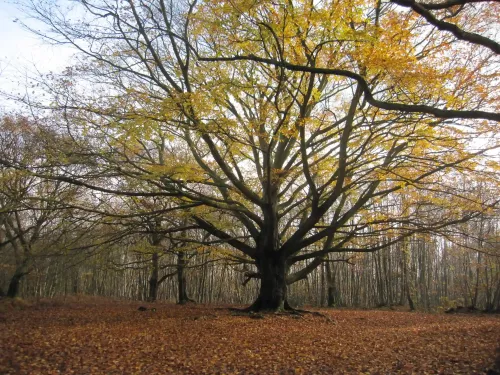
10 must-visit Kent woodlands
Be sure to check out these 10 woods whilst exploring Kent, each offering something a little different across the county.

As someone who regularly uses birdwatching to relax and to help maintain my own mental wellbeing, I don’t think I’ve ever read anything more relatable than Bird Therapy. Joe Harkness manages to find the words to describe what birdwatching can do for our mental health, in a very accessible and meaningful way. He takes us through his journey – starting with his own lived experience of mental ill health, and how he began to interact with birds, or as he calls it “the five ways to well-birding”. Each chapter takes us through a different aspect of birdwatching, and what it means to Joe, and finishes with some practical tips for us to put into use ourselves.
Joe talks about building a knowledge and relationship with our feathered friends, and having a connection to the places we see birds. His two main areas he does this is in his garden, and his local ‘patch’. Joe notices who visits, the species, how many, and whether you can identify individuals. He then starts building on familiar patterns and building knowledge on when migrants start to appear or disappear, the habitats species prefer and any new species that surprise him with their presence. The more he takes notice of what there is to see, the more the relationship and connection builds – the art of mindful birdwatching. Joe also talks about wildlife spectacles he has seen – including the appearance of 60 pied flycatchers, and the first time he saw rarer species such as the Pallas’s warbler…some incredible encounters that would leave many in awe.
He talks about the peace birdwatching brings him, that when he is looking down the barrel of his scope or binoculars, focussing on the bird seen through the optics, everything else melts away and even the busiest or chaotic of minds can rest for a minute. Ultimate escapism.
The sense of connection between Joe and birdwatching in his local areas, be that his garden, his patch, or nature reserves he visits, is clear. What is also clear to see is how much of a positive benefit it has for his wellbeing.
For me, it has been quite difficult to put into words about the book, because I can relate to it as a FEELING – the calmness, the contentment, the comfort and the peace that birdwatching brings me, is what Joe has managed to put into words so eloquently…which is why I can’t recommend this book enough!
This is the second book I’d like to highlight, as Isabel brings variety and many ideas for how we can incorporate nature and our environment into our lives, to help our wellbeing. Isabel talks very openly about her own mental ill-health, and how nature helped her. She gives a very personal feel (much like Bird Therapy), as we follow her with her journey of discovery, how each aspect or activity in nature benefitted her mental health; from gardening to wild swimming, walking to running, orchids to moths, and meadows to bird hides.
The Natural Health Service references studies and research, which evidence the personal stories that are included, from Isabel or other individuals. A lot of thorough research is clear, however it isn’t overly ‘science-y’ as the evidence is paired with wonderfully relatable and anecdotal accounts to bring the evidence to life.
Isabel also draws on experience from other authors/figures within the mental health or nature sector. We talk to Bella Mackie, who tells us about her personal experiences of running for wellbeing in our natural environment. We discuss Wim Hof and the amazing evidence and benefits that cold water swimming brings, and how this is one of Isabel’s key self-care techniques. It actually inspired me to have a go at wild swimming (although in the balmier September conditions!).
We also read about Isabel’s ‘orchid hunting’ after finding inspiration from Leif Bersweden (the author of The Orchid Hunter) – Isabel talks about our own Kent Wildlife Trust reserve here, Marden Meadow:
“Some meadows knock the breath out of your mouth with far greater force than anything sown from a packet. Marden Meadows in Kent is one such. In early summer, hundreds of thousands of green-winged orchids come into bloom, turning the grass purple. When I rounded the corner one Friday evening and saw these plants for the first time, I let out an involuntary ‘oh!’”
There really is something for everyone in this book – something everyone can try, and so much to learn! If you didn’t know the benefits nature can have on our wellbeing before, you certainly will do after reading this wonderful book. It truly shows that we do indeed have a ‘Natural Health Service’ available to us, and holds incredible value much like our National Health Service.
These two books are brilliant examples of how to bring nature connectedness into our lives, amongst many others! Share your favourite nature books via #ConnectToNature

Be sure to check out these 10 woods whilst exploring Kent, each offering something a little different across the county.

Since bison were released into West Blean and Thornden Woods on the outskirts of Canterbury, they have not only transformed the landscape but significantly grown in number.

Natasha Ruskin explores something terrifying: a world without woodlands.